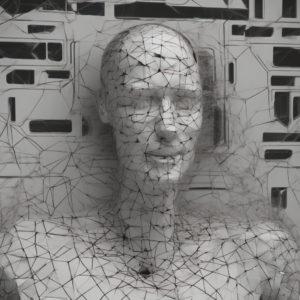Navigating the Complexities of Car Accident Injury Claims: A Comprehensive Guide
Being involved in a car accident can be a traumatic experience, often leaving victims with physical injuries, emotional distress, and the daunting task of navigating the insurance claim process. Understanding your rights and responsibilities after a car accident is crucial to securing fair compensation for your injuries and losses.
Immediate Actions After a Car Accident
The immediate aftermath of a car accident is critical. Your actions in these initial moments can significantly impact your ability to successfully file an injury claim.
- Ensure Safety: Prioritize safety for yourself and others involved. Turn on hazard lights, move vehicles to a safe location if possible, and call emergency services if necessary.
- Document the Scene: Take photographs and videos of the accident scene, including vehicle damage, injuries, and surrounding environment. Note the location, time, and weather conditions.
- Gather Information: Exchange information with other drivers involved, including names, contact details, driver’s license numbers, insurance information, and vehicle registration details. Obtain contact information from any witnesses.
- Seek Medical Attention: Even if your injuries seem minor, seek immediate medical attention. Delayed treatment can complicate your claim and potentially worsen your condition.
- Report the Accident: Report the accident to the police. A police report provides an official record of the incident, which is valuable evidence for your claim.
- Contact Your Insurance Company: Notify your insurance company as soon as possible, providing them with the necessary details of the accident.
Understanding Your Legal Rights
Understanding your legal rights is essential for pursuing a successful injury claim. Your rights vary depending on the specifics of your accident and the jurisdiction.
- Fault Determination: In many jurisdictions, fault is determined based on negligence. If the other driver is at fault, you can pursue a claim against their insurance company. In some cases, accidents may involve multiple parties sharing fault.
- Negligence: To establish negligence, you must demonstrate that the other driver owed you a duty of care, breached that duty, and that their breach caused your injuries.
- Comparative Negligence: In some states, the concept of comparative negligence applies. This means your own negligence may reduce the amount of compensation you can recover. For instance, if you are found to be 20% at fault, your compensation may be reduced by 20%.
- Statute of Limitations: There is a time limit, known as the statute of limitations, within which you must file your injury claim. This time limit varies by state and type of claim.
Types of Damages You Can Claim
Car accident injury claims can encompass a wide range of damages, both economic and non-economic.
- Economic Damages: These are readily quantifiable financial losses. Examples include:
- Medical expenses (hospital bills, doctor visits, physical therapy, medication)
- Lost wages (past and future income lost due to injury)
- Property damage (repair or replacement costs for your vehicle)
- Rehabilitation costs
- Non-Economic Damages: These are more difficult to quantify and relate to the pain and suffering caused by the accident. Examples include:
- Pain and suffering
- Emotional distress
- Loss of consortium (loss of companionship and intimacy with a spouse)
- Disfigurement
- Loss of enjoyment of life
The Claims Process
Filing a car accident injury claim typically involves several steps:
- Negotiation with Insurance Company: Your attorney will typically initiate negotiations with the at-fault driver’s insurance company to reach a settlement.
- Demand Letter: A formal demand letter outlining your damages and the basis for your claim is usually sent to the insurance company.
- Settlement Negotiations: The insurance company may offer a settlement, which you can accept or reject.
- Filing a Lawsuit: If negotiations fail to reach a satisfactory settlement, your attorney may file a lawsuit to pursue your claim in court.
- Discovery: The discovery phase involves gathering evidence, including medical records, police reports, witness statements, and expert testimony.
- Trial: If the case goes to trial, a judge or jury will determine liability and damages.
Importance of Legal Counsel
Dealing with insurance companies and navigating the legal complexities of a car accident injury claim can be challenging. Hiring an experienced personal injury attorney can significantly increase your chances of obtaining fair compensation.
- Expert Negotiation Skills: Attorneys possess the skills and experience to negotiate effectively with insurance companies, often securing better settlements than individuals can achieve on their own.
- Knowledge of the Law: Attorneys have in-depth knowledge of personal injury law, ensuring your claim is handled correctly and in accordance with the law.
- Evidence Gathering: Attorneys assist in gathering crucial evidence to support your claim, including medical records, police reports, and witness statements.
- Litigation Representation: If your case goes to trial, an attorney will represent you in court, advocating for your rights and interests.
- Case Evaluation: An attorney can provide a realistic assessment of your case’s value and potential outcomes.
Factors Affecting Claim Value
Several factors can influence the value of your car accident injury claim:
- Severity of Injuries: The more severe your injuries, the higher your potential compensation.
- Extent of Damages: The amount of your economic and non-economic damages will significantly impact the claim value.
- Liability: If the other driver is clearly at fault, your claim is more likely to be successful and potentially yield higher compensation.
- Comparative Negligence: As mentioned earlier, your own negligence can reduce the amount you can recover.
- Insurance Policy Limits: The insurance policy limits of the at-fault driver will cap the amount of compensation available.
- Jurisdiction: The laws and legal precedents in your jurisdiction can influence the value of your claim.
Dealing with Insurance Adjusters
Interacting with insurance adjusters requires caution. Remember that insurance adjusters are primarily focused on minimizing the amount the insurance company pays out.
- Document Everything: Keep meticulous records of all communications, including emails, letters, and phone calls with the insurance adjuster.
- Avoid Premature Settlements: Do not rush into accepting a settlement offer before understanding the full extent of your injuries and losses.
- Consult with an Attorney: Before speaking with an insurance adjuster, it’s advisable to consult with an attorney to understand your rights and protect your interests.
- Don’t Admit Fault: Avoid making statements that could be construed as admitting fault for the accident.
- Be Honest and Accurate: While protecting your interests, provide accurate and truthful information to the insurance adjuster.
Long-Term Effects of Injuries
The long-term effects of car accident injuries can be significant and far-reaching. These effects should be considered when assessing the value of your claim.
- Chronic Pain: Many car accident victims experience chronic pain that can persist for months or years after the accident.
- Disability: Severe injuries can lead to permanent disabilities, impacting your ability to work and perform daily activities.
- Emotional Trauma: Car accidents can cause significant emotional distress, including PTSD, anxiety, and depression.
- Future Medical Expenses: Long-term care and ongoing medical treatment can generate substantial future medical expenses.
- Lost Earning Capacity: Injuries can significantly impact your ability to earn an income, leading to future lost wages.
Preparing for a Potential Lawsuit
If a settlement cannot be reached, you may need to prepare for a potential lawsuit.
- Gather Evidence: Thoroughly document all evidence related to your claim, including medical records, bills, photos, and witness statements.
- Expert Witnesses: Your attorney may need to consult with expert witnesses, such as medical professionals or accident reconstruction specialists, to support your case.
- Legal Strategy: Your attorney will develop a comprehensive legal strategy for presenting your case in court.
- Trial Preparation: Thorough preparation for trial is crucial, involving practice testimony, witness preparation, and reviewing evidence.
- Settlement During Litigation: Even during litigation, there is often an opportunity to reach a settlement before going to trial.





